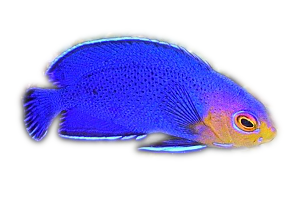
By Bob Goemans

To the Readers:
Let me thank both Ileana Holder and the Brooklyn Aquarium Society for their permission to reprint this article here on my website. Sharing valuable information is what this website is all about. - Bob Goemans
Do-it-yourself Solutions to Your Phytoplankton Needs
As a reef keeper we know that one of the key elements is phytoplankton. Many of us dose regularly with various products on the market. We use different forms of phytoplankton, for example; flakes, paste or liquid. This can be very expensive on larger reef tanks. I have used Kent and DT's. I've found DT's to be more effective since it is alive.
A couple of months ago I posted a question on Reef Central about Do-it-yourself phytoplankton. I received a reply from a fellow reef keeper in Canada, Ms. Susan J. Wilson. Ms. Wilson informed me that I could cultivate my own phytoplankton. She had been doing that for sometime successfully. She refers to this as her 'green slime factory.' Ms. Wilson and I soon became E-mail pals and she guided me through step-by-step on how to start a phytoplankton culture and how to keep that culture going.
First she provided me with the address of Florida Aqua Farms. There I purchased the phytoplankton disk medium and culture fertilizer. Over a period of a month Susan guided me through the process. Even with her help I made several mistakes, but was able to correct them. Now after eight months I have it down pat.
At our Brooklyn Aquarium Society (BAS) May 2002 meeting I gave away several samples to a few of my BAS friends. I gave each person a two-day supply of phytoplankton. The response, I was told, was that their corals loved it. I have been feeding and dosing all my reef tanks only with my phytoplankton, B-Ionic, iodine, and strontium.
Following is my Phytoplankton Recipe:
Items needed:
* 1) Florida Aqua Farms Micro Algae Disk (Nannochloropus)
* 2) Florida Aqua Farms Micro Algae Grow (Culture fertilizer)
* 3) A couple of 2-liter soda bottles
* 4) A small 3/4 airstone, tubing, multi-outlet, air valve and an air pump
* 5) Sterilized R/O or distilled water (Prepare the sterile/RO water by boiling, or microwave the water for 7 minutes before you add the sea salt and the culture fertilizer.)
* 6) 3 tbs. of sea salt
* 7) 18 inch double fluorescent light strip with two 20 watt lamps.
Procedure:
* 1) Soak medium disk overnight in sterile distilled or R/O water
* 2) Fill 2 liter soda bottles with culture water.
* 3) Add disk medium to bottle, by scrapping off only the medium into the bottle
* 4) Insert the airstone with the tubing into the 2 liter bottle. The culture water should soon be giving off bubbles, so you should not put the bottle cap on too tight.
* 5) Place the bottle in front of the light strip. For best results keep the light on 24/7. A. minimum of at least 18 hours also works.
* 6) Culture should start to turn green getting darker each day. The culture should be ready to use within 10 days.
Dosing is approximately one cup per 50 gallons every other day.
To continue cultivating the phytoplankton culture, reserve 1/4 of dark green mixture and add more cultured water. It's a good idea to keep more than one bottle of cultured water on hand. The best way to keep the cultures going is to rotate the bottles. You can achieve this by keeping 4 to 5 culture bottles going. Each bottle should be started 4 days apart to keep the system going.
* For additional information and photos check out Susan Wilson's website at: http://www.sjwilson.net/reef/ (Flame Angel Reef)
* Florida Aqua Farms website: www.fafusa.com or telephone them at (352) 567 0226
* You can also E-mail me at iholder@att.net for additional information.
Note: Florida Aqua Farms also sells a guidebook on how to grow and keep the cultures alive. They also have a catalog of other items relating to marine and reef keeping.